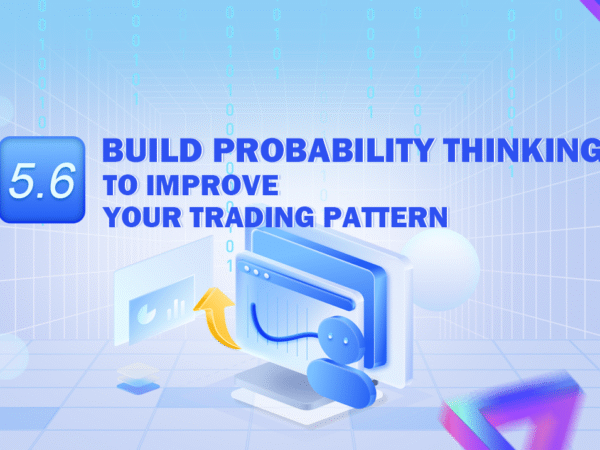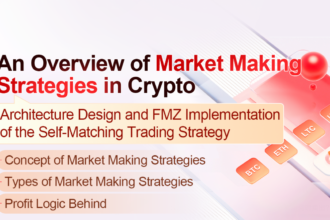Summary
Trading is both a science and an art. There are many methods in trading, whether it is value investment, technical analysis, event hot spots, arbitrage hedging, etc., which seem logically rigorous on the surface, and it can also be plausible theoretically. But in fact, they often contradict each other. Sometimes, the rigor of science cannot explain the unconstrained nature of art.
Although various trading methods have different starting points, all roads lead to Rome. The advantage of value investment is that it can divide a margin of safety for price fluctuations according to value; The advantage of technical analysis is that the three major assumptions make the transaction scientific.
However, they all have a common feature, that is, the price analysis of the future can only be predicted roughly not accurately. Even if fundamental analysis and technical analysis are combined, the problem of improving “accuracy” cannot be solved, so trading is a probability game from beginning to end.
Probability game
In fact, not only trading is a game of probability. When you cross the road (green light, is it safe to cross the road now?); What kind of friends do you make (is this friend reliable?); What kind of business you are engaged in (is career trading really a good business?), who you marry (will we be happy together?), and so on, are all probability games to evaluate risks and returns. Because we do not have the ability to predict, even if we are more confident about everything, risks always exist, and we cannot achieve 100% certainty.
The important reason why many people make mistakes in trading is that they lack probability thinking and are too emotional rather than rational in trading. Sensibility is actually our primitive instincts. In the market, these primitive instincts can stimulate many weaknesses of people and magnify them exponentially. This is also the reason why most people come to the market and end up with failure.
Reasons for trading failure
Reason 1: Because of human nature
Most people have one weakness: they like to take small advantages but they are afraid of small losses. Once there is a small profit in the market, they will immediately cash out, take profits out; Once there is a loss, they hold on to the loss position and try to get lucky to get back their capital. As a result, small losses accumulate into large losses gradually.
The price will either go up or down, or it will not move. In the long run, the probability of making profits and losing money is about 50% without considering the handling fee and sliding point, so the trading method of most people will become a negative expectation strategy with limited profits and unlimited risks. Their transaction statements should be as follows: small profit >> … >>small profit >>great loss.
In real life, this is very similar to the thinking of the poor and the rich. The poor are risk-averse and afraid of loss, they like the work of ensuring harvest in drought and flood, and pursue stability. Even if they are not absolutely sure about doing something, they will never do it. On the surface, there seems to be nothing wrong with this, but there are huge opportunity risks behind it.
The rich are more willing to take risks. They know that risks are always proportional to returns. Only risks breed opportunities. They can reasonably evaluate risks and make bold bets when risks are controllable.
Reason 2: Like to make quick money
A foreign organization once made statistics. In the long run, the annualized return on net assets of most industries is difficult to exceed 15%. On the contrary, many retail investors think that they can earn 15% in the market and are embarrassed to say hello to others. People like to make fast money. In action, they are large position trading and short-term trading.
Large position
Large positions, high leverage and capital allocation are very attractive and dangerous. Success leads to success, and failure leads to disaster. If you have a trading strategy with a winning rate of 50%, and a full position plus matching operation, you may win more than ten times in a row if you are lucky. It is also possible for wealth to change from quantitative to qualitative.
However, you only need to make a mistake once, and then you will return to zero. Even if you just take a large position without matching, there is a risk that your account will return to zero, because you cannot guarantee that you will lose more than ten times in the next market. Even large position trading can turn a trading strategy that was expected to be positive into a strategy that is not equal to winning or losing.
Short-term
In the trading world, manual order speculation, intra-day short-term trading and quantitative high-frequency trading have always been very mysterious. I am not suspicious of those who watch the stopwatch to trade, but try to persuade you to give up short-term trading from another perspective.
We can judge whether a method is feasible, not only by those who succeed in these methods, but also by those who fail in these methods. In other words, you can’t think that buying lottery tickets is a positive strategy just because some people win the lottery.
In addition, look at the list of private placement products. How many of the top 100 in the list for more than three years are engaged in speculation or short-term trading? There is no doubt that the rate of short-term production is very low. Even if it is successful, this method of making money quickly is difficult to maintain for a long time. If you are not gifted, be careful to use this kind of unique skill. After all, Simmons has only one.
Reason 3: Prejudice
If you can, it is recommended that you spend 100 minutes watching a movie – “Twelve Angry Men”. A film remade by four countries, the first edition in the United States in 1957, the Japanese version in 1991, the Russian version in 1997, and the Chinese version in 2014. Although this film does not teach you how to do trading, it does teach you how to look at things and learn to know yourself, which is very important.
Because human experience is limited, so is human cognition. Everyone is more or less biased according to their own experience. In many cases, prejudice has become the habit of most people, and it is natural to judge many things with their own emotions.
Back to the market, whether your judgment of the market is based on fundamental analysis or technical analysis, these are not really important. If your point of view is different from that of the majority of the market, the price is more biased towards the majority of the market, and the market will not operate according to your point of view.
Therefore, in the transaction, we must keep in mind “judgment, but not rely on judgment”. Ultimately, we should be based on facts and prices. The only strength of price rise and fall is the expectation of most people for the future. Your judgment has no weight in the market. Don’t let your judgment form your own prejudice.
Reason 4: Pursuit of perfection.
Market participants include elites from all walks of life, including physics, statistics, mathematics, astronomy, etc. Many people try to explain the market with their professional knowledge.
But the main body of market participation is people, and people themselves have cognitive limitations, which means that the market itself is wrong and imperfect. So how can we use these “perfect” methods to explain the market? Isn’t that against the nature of the market?
The above lists the reasons why the vast majority of people who came to the market ended in failure. In addition to the main reasons mentioned above, there are many factors that will not be listed here. In short, in addition to your confidence in winning, everything else is a stumbling block to your success.
Those who make profits in the market because of good luck will eventually give it back to the market as time goes by. Therefore, the futures market is a negative sum game market. Only by changing your own way of thinking and establishing your own trading strategy, can you succeed.
What is the thinking mode of probability?
Probabilistic thinking is a literary name. To put it more popular, it is gambling thinking. You heard me right. Trading is gambling. When you hear about gambling, you may think of “who gambles and loses his money or runs away in debt or splits his wife and children” and avoid it.
There are also some red-eyed gamblers in society. But gambling ≠ gamblers. “Gambling” is probably one of the most misunderstood words. If your strategy is negative, you are a gambler; If your strategy is positive expectation, it is gambling.
If we remove the derogatory meaning of “gambling” and understand it as an activity that takes certain risks and obtains certain rewards, then life is really “gambling” everywhere. Which major to choose in school, whether to buy a house, whether to start a project, whether to work or start a business, etc.
Even saving money in a bank is also a gamble, because you are not sure whether inflation will occur in the future and whether the bank will go bankrupt (refer to the Greek debt crisis). In short, from cradle to grave, every process of life is gambling.
How to win gambling for a long time
With the concept of gambling, we need to further solve it. How can we win at gambling for a long time? Before we study the strategy of “win at gambling for a long time”, let’s first study the principle of those strategies of “win at gambling for a long time”. In addition to the money printing machine, what else can we win at gambling for a long time?
That’s what’s in the casino: baccarat, roulette, slot machine, blackjack, etc. No matter how you change the playing method, the casino will win in the end. In fact, there is a secret that casinos never say: the law of large numbers.
The principle of dice games
Three dice, bet size, 4-10 is small, 11-17 is big, bet right and win money. And the dice has a kind of round dice, that is, the three dice have the same number of points, and the probability of the round dice is 2.8%. Then the probability of large and small occurrence is 48.6%, respectively. The casino is based on this 2.8% probability. If each gambler bet 100 yuan per game, the casino will win 280 yuan after playing 100 games.
(0.486+0.028)100100-0.486100100=280
However, this casino strategy is flawed. If a big player decides to bet tens of billions of dollars on a whim and wins again, the casino will go bankrupt. Therefore, the casino will set a betting limit. If the limit is exceeded, no more bets can be made. In this way, even if the gambler is lucky to win money for a while, in the long run, he will still lose to the probability. In the infinite number of dice games, the gambler will lose 2.8% of the money.
Law of large numbers
The advantage of the casino owner is only 2% more than that of the gambler. In a single gambling game, the boss may lose money or even suffer continuous losses. However, the casino owner will not be frightened by the loss, because he knows that the “law of large numbers” plays a role in his ability to make money. As long as someone continues to gamble, only a 2% weak advantage is needed to make a long-term stable profit.
So the casino is not afraid of you winning, but afraid of you not coming. Over the years, you have even heard of bank failures, but when did you hear of casino failures? In the long run, casinos will always be winners. That is to say, gambling for a long time will win.
Similar examples of winning a long bet are: various lotteries. The lottery pool funds have accumulated more and more since the lottery was listed. Of course, the money comes from the vast number of lottery users. Do you know the probability of 5 million in a double-color ball? The answer is 1 in 17.7 million.
Change of probability
Suppose there is a coin with the same weight as the front and back, and the probability of throwing the word (back) and the flower (front) is 50%, and each coin toss is independent of the previous result. If you flip the coin 10,000 times in succession, the probability of a flower side is about 50%.
However, if you only throw 10 times, the probability of a flower side changes, which is not necessarily 50%. Therefore, the casino dealer must ensure that the positive expectation strategy is triggered enough times to be effective. This is also the reason why private equity institutions cannot stop the quantitative trading strategy unless they have special conditions.
How to use the “law of large numbers” to create a winning strategy in the financial market will be the content of our next series of courses, so look forward to it!
To sum up
Above, we have explained to you how to use a scientific approach to deal with trading from the aspects of probability, the reason for trading failure, the correct way of thinking about trading, and the principle of winning at gambling for a long time. I believe that if you have learned something, the change of thinking will be the change of your behavior, and the change of behavior will be the change of your success.
After-school exercises
- Why is trading a game of probability?
- What are the reasons for trading failure?





